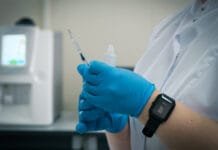Breast Cancer Awareness Month serves as a vital reminder for women globally to prioritize their health and well-being. With the guidance of Dr. Antriksh Srivastava, a renowned health expert, we delve into the essential steps women should take during this pivotal month.
Routine Self-Examinations
One of the most proactive measures a woman can adopt is regular self-examinations. Familiarity with the natural state of one’s breasts can be instrumental in detecting early signs of abnormalities. Should any lumps, swelling, or skin changes be noticed, seeking immediate medical consultation is paramount.
Scheduling Mammograms
Mammograms stand as a cornerstone in breast cancer detection. Women aged 40 and above should consider yearly screenings. However, based on familial history or other risk factors, earlier and more frequent screenings might be advisable.
Understanding the Risk Factors
While every woman is at risk, certain factors can heighten susceptibility. Factors such as age, genetic mutations, early menstruation, and late menopause can influence risk. Being informed aids in making vigilant health decisions.
Diet and Nutrition
A balanced diet plays a pivotal role in overall health. Foods rich in antioxidants, like berries and nuts, and those high in fiber, like whole grains, can be beneficial. Reducing alcohol consumption and maintaining an optimal weight are also crucial.
Physical Activity
Regular exercise can be a powerful deterrent against breast cancer. Activities such as brisk walking, swimming, or yoga not only bolster overall health but specifically aid in reducing breast cancer risk.
Limiting Hormone Replacement Therapy (HRT)
Extended use of HRT can elevate the risk of breast cancer. If considering HRT for menopausal symptoms, it’s essential to discuss the potential risks and benefits with a healthcare professional.
Being Informed About Family History
A history of breast cancer in the family can increase one’s risk. Sharing this information with a healthcare provider can guide personalized screening recommendations.
Reducing Exposure to Radiation
Frequent exposure to radiation, primarily through repeated medical imaging tests, can elevate risk. It’s essential to communicate with healthcare providers about your exposure history and any alternative imaging options.
Limiting Alcohol and Tobacco Use
Alcohol consumption, even in small amounts, can elevate breast cancer risk. Tobacco usage, both primary and secondary, has been linked to a heightened risk of various cancers, including breast cancer.
Stay Updated on Research and Advancements
Staying abreast of the latest research and medical advancements can empower women to make informed health choices. Regularly consulting with healthcare professionals ensures one is equipped with the latest knowledge.
Conclusion
Breast Cancer Awareness Month serves as more than a period of reflection; it’s a call to action. With insights from Dr. Antriksh Srivastava, women are better equipped to take proactive measures, ensuring their health remains a top priority. Regular screenings, being aware of risk factors, and leading a balanced lifestyle are just a few ways to safeguard against breast cancer.
About renowned health expert

Dr. Antriksh Srivastava
Dr. Antriksh Srivastava
Surgeon and Assistant professor
Dr Antriksh Srivastava served in Delhi state cancer institute GTB hospital new Delhi.
After this he worked in Jag Parvesh Chandra hospital new delhi and currently he is assistant professor at Allahabad medical college and Mirzapur medical college.
Contact – :
Mobile – : +91 – 9971502063
Email – : drantrikshasrivastava@gmail.com













